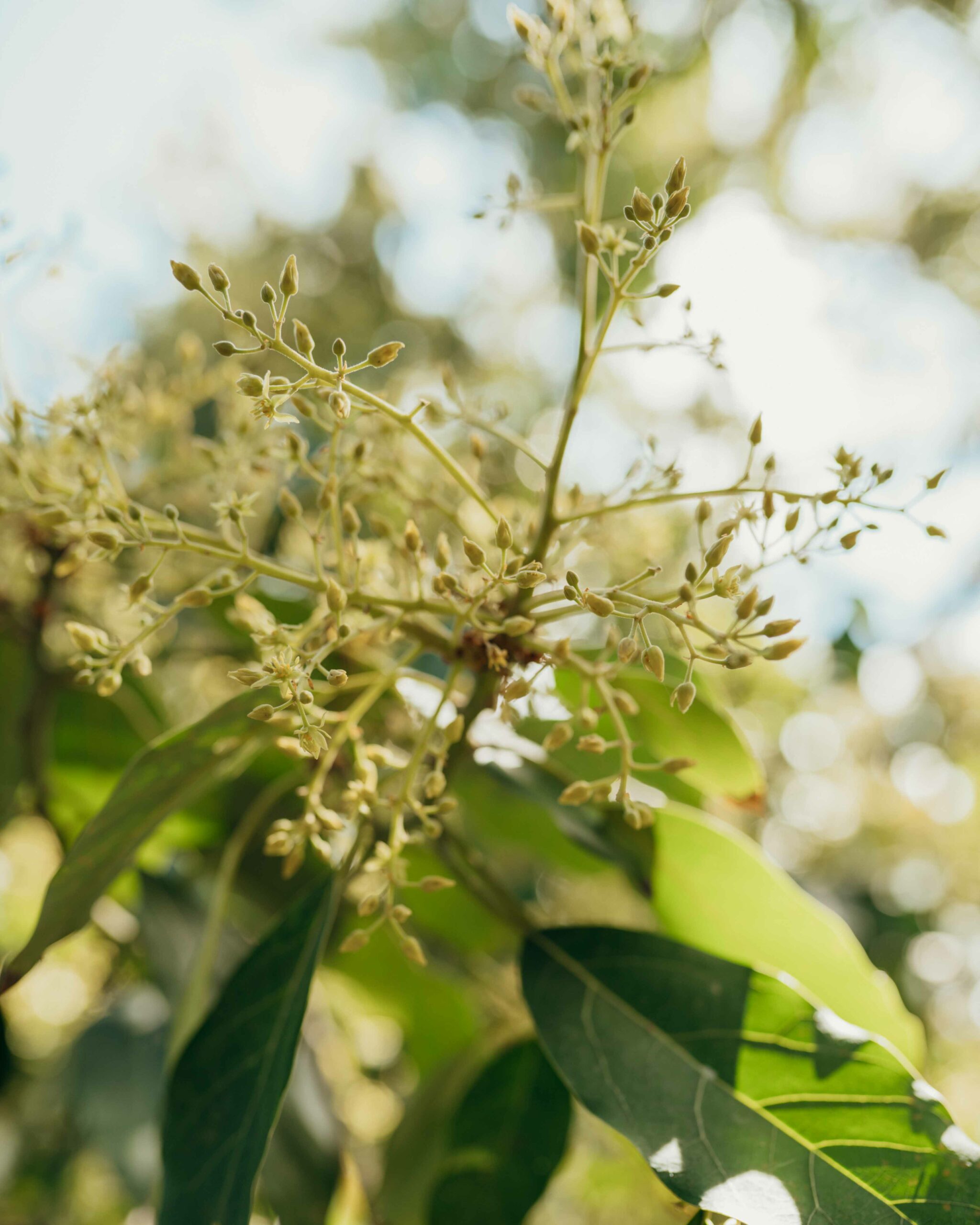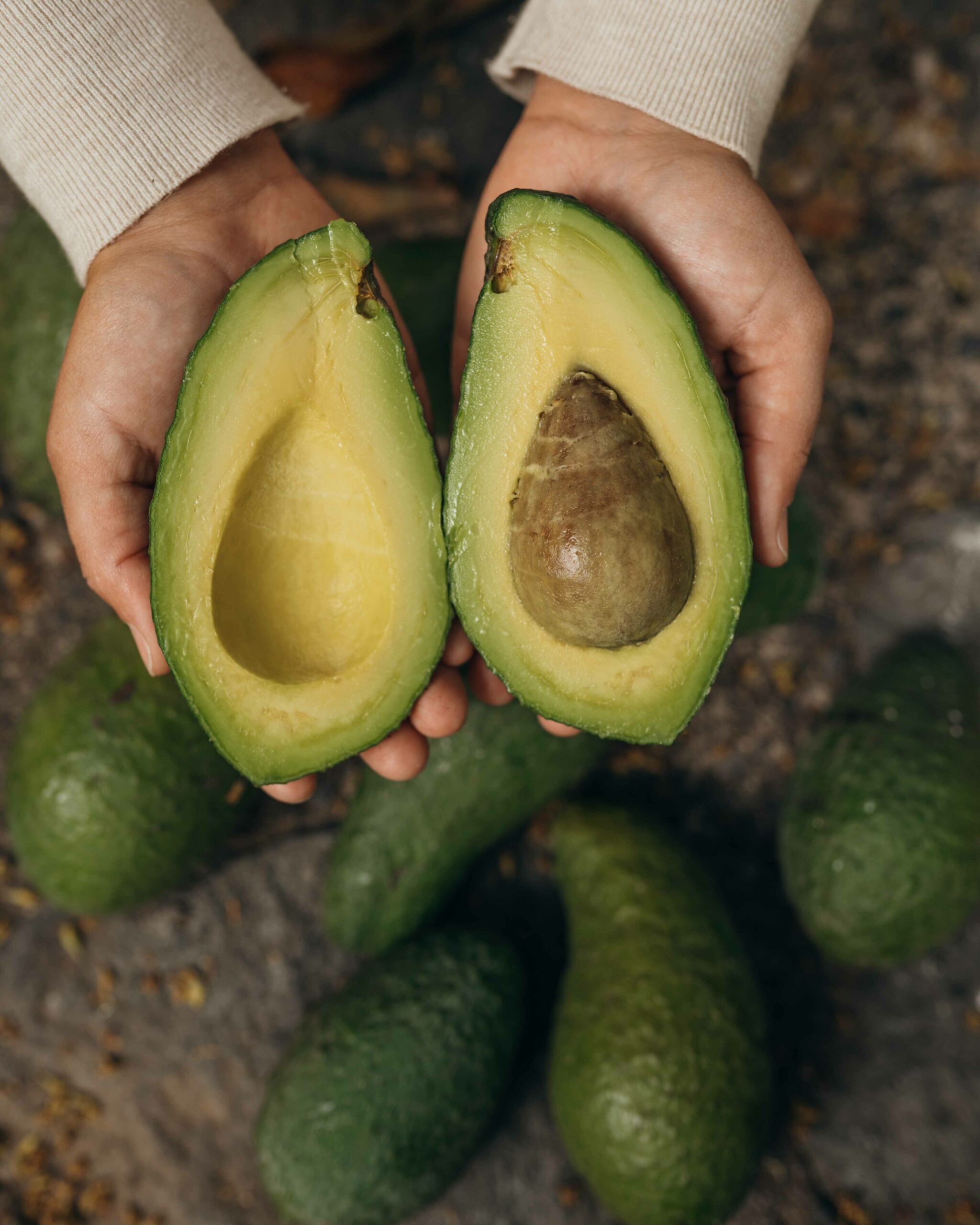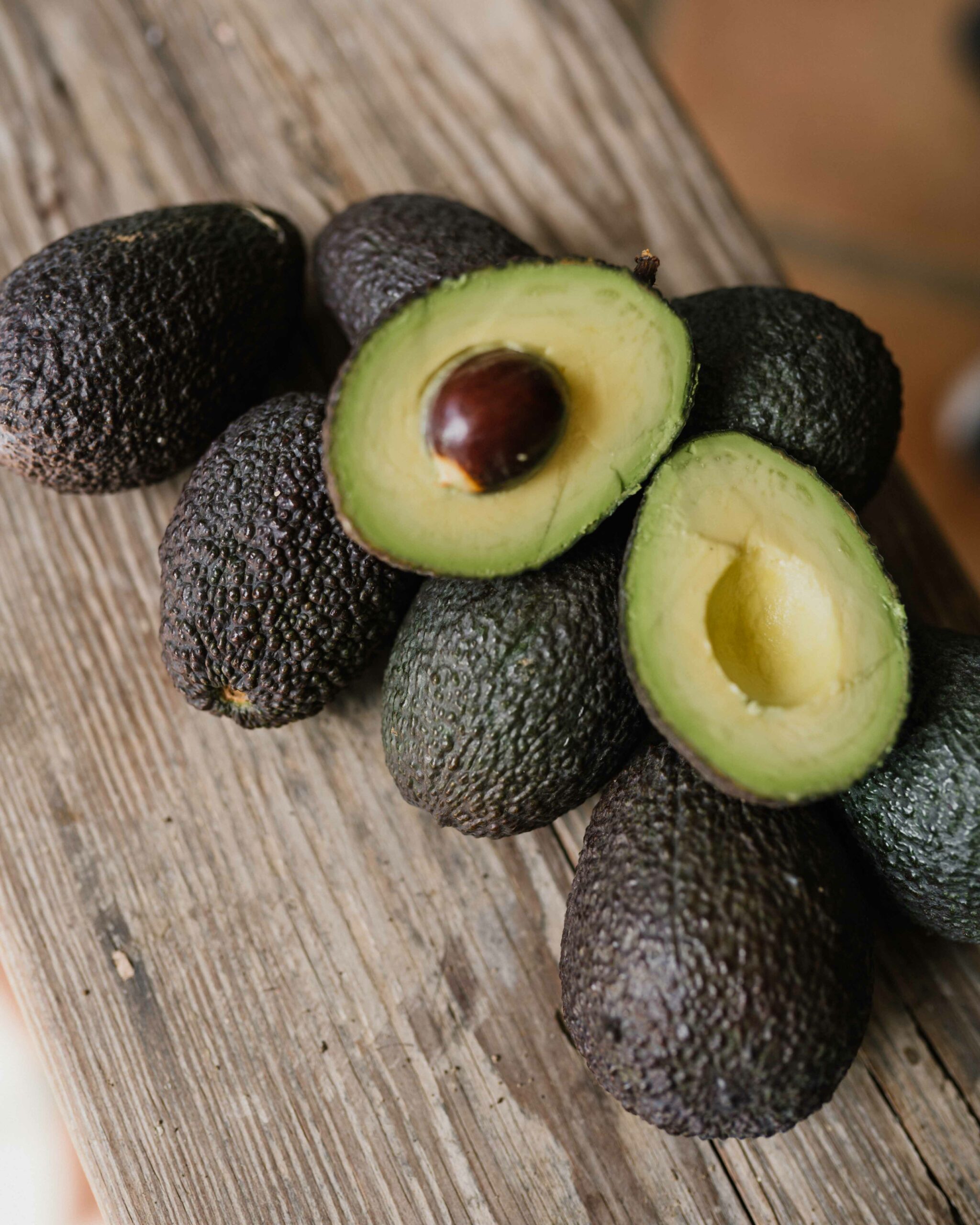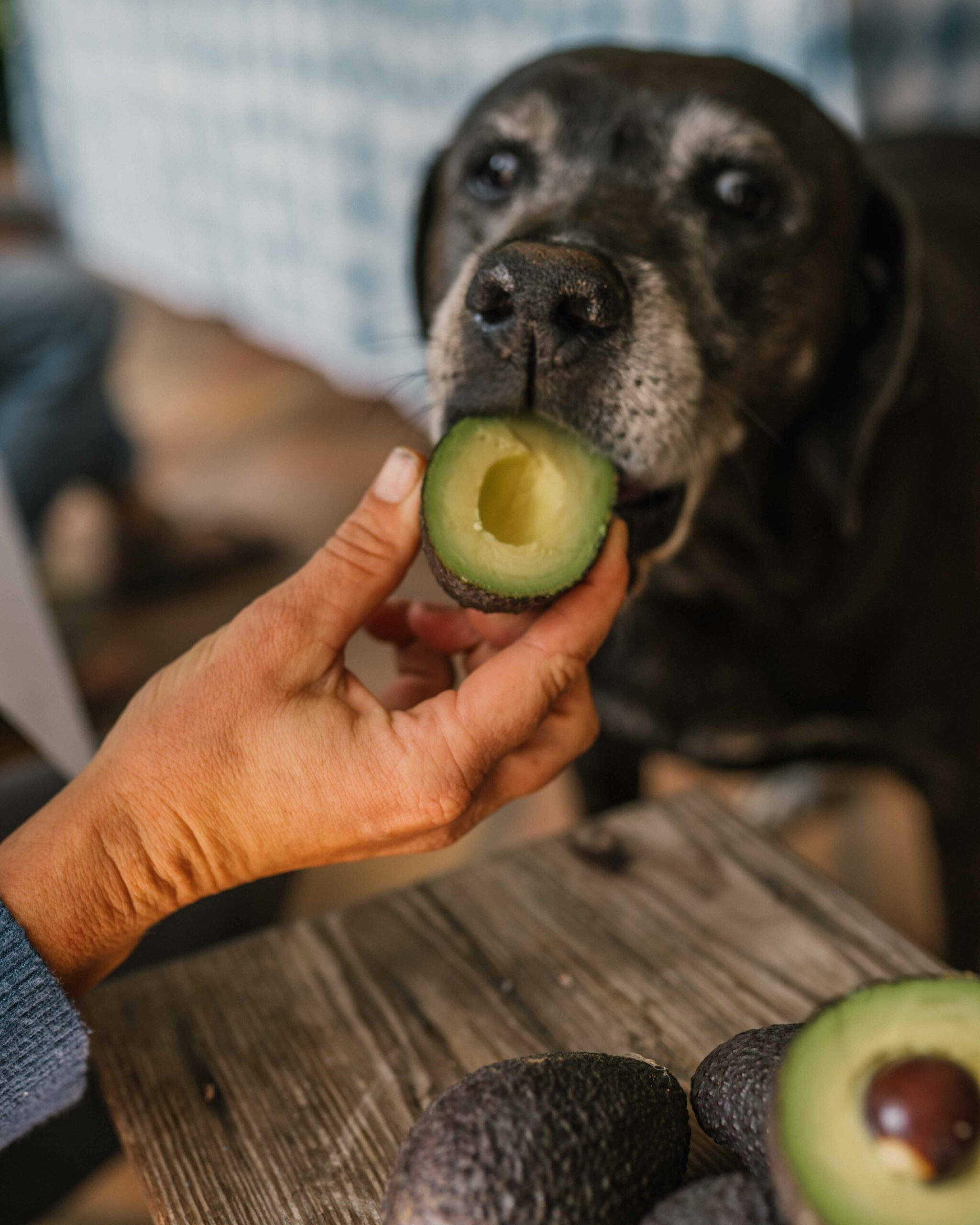Persea americana
Avocado
Englische Bezeichnung: Avocado
Spanische Bezeichnung: Aguacate
Familie
Lorbeergewächse (Lauraceae)
Sorten auf der Finca:
-
Hass
-
Bacon
-
Fuerte
-
Orotava
-
Rincon
-
Choquette
-
Anaga
Hauptbestandteile:
Mineralstoffe: Kalium
Vitamine: B-Vitamine, E, K, Beta-Carotin (Provitamin A), Folsäure
Sekundäre Pflanzenstoffe: Antioxidantien (Lutein), Phenolische Verbindungen
Ernte-Hinweise:
Die Avocados werden gepflückt wenn sie ausgereift sind. Sobald sie leicht weich werden, sind sie bereit zum Verzehr.
Verwendung:
Roh
-
z.B.: Guacamole, in Salaten, Wraps, Dips, Smoothies, Pudding, Cheesecake
Der Name „Avocado“ geht auf das aztekische Wort „ahuacatl“ zurück, was auch „Hodenfrucht“ bedeutet. Sie haben auch die Spitznamen „Alligatorbirnen“ oder wegen des hohen Fettgehalts „Butterfrüchte“.
Die Avocado ist reich an guten Fetten und enthält hauptsächlich Ölsäure, eine Omega-9-Fettsäure, sowie Linolsäure (Omega-6-Fettsäure).
Family
Laurel family (Lauraceae)
Varieties on the finca:
-
Hass
-
Bacon
-
Fuerte
-
Orotava
-
Rincon
-
Choquette
-
Anaga
Main components:
Minerals: Potassium
Vitamins: B vitamins, E, K, beta-carotene (provitamin A), folic acid
Secondary plant substances: antioxidants (lutein), phenolic compounds
Harvesting guideline:
The avocados are picked when they are ripe. As soon as they soften slightly, they are ready to eat.
Use:
Raw
E.g.: Guacamole, in salads, wraps, dips, smoothies, puddings, cheesecakes.
The name „avocado“ goes back to the Aztec word „ahuacatl“, which also means „testicle fruit“. They also have the nicknames „alligator pears“ or „butterfruits“ because of the high fat content.
The avocado is rich in good fats and contains mainly oleic acid, an omega-9 fatty acid, and linoleic acid (omega-6 fatty acid).
Familia
Familia del laurel (Lauraceae)
Variedades en la finca:
-
Hass
-
Bacon
-
Fuerte
-
Orotava
-
Rincon
-
Choquette
-
Anaga
Componentes principales:
Minerales: Potasio
Vitaminas: Vitaminas del grupo B, E, K, betacaroteno (provitamina A), ácido fólico
Sustancias vegetales secundarias: antioxidantes (luteína), compuestos fenólicos
Uso:
Crudo
Ej: Guacamole, en ensaladas, wraps, dips, batidos, puddings, tartas de queso.
El nombre „aguacate“ se remonta a la palabra azteca „ahuacatl“, que también significa „fruta testicular“. También reciben los apodos de „peras caimán“ o „frutas de mantequilla“ por su alto contenido en grasa.
El aguacate es rico en grasas buenas y contiene principalmente ácido oleico, un ácido graso omega-9, y ácido linoleico (ácido graso omega-6).












































